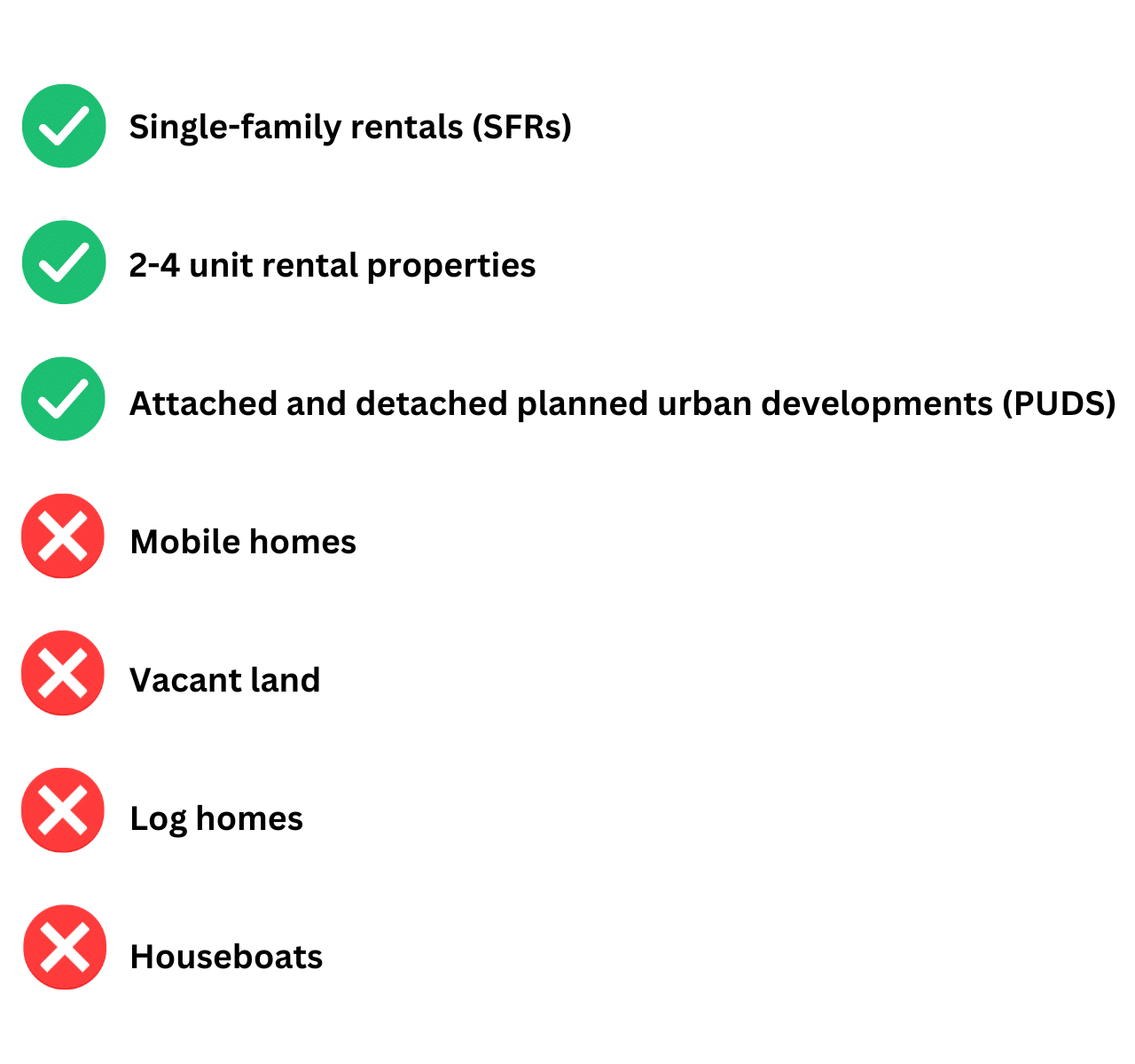DSCR Loan FAQs
Investors can eliminate traditional funding’s tight restrictions and opt for a targeted, goal-focused rental investment debt-service coverage ratio (DSCR) loan – which offers several easy features like no hard credit pulls, income verifications, or strict FICO scores to qualify.
A Debt Service Coverage Ratio (DSCR) loan looks at the cash flow generated from an investment property to qualify for a mortgage instead of personal income.
What is Debt Service Coverage Ratio (DSCR)?
Before learning the ins and outs of a rental property loan, it’s beneficial to understand the calculation and purpose of the debt service coverage ratio. Lenders use this ratio to determine if you have sufficient funds to repay your debt. The lender will use this information to decide how much money to lend when requesting a loan or refinancing an existing one.
DSCR is the ratio of income generated for every $1 owed to the lender. The higher the ratio is, the more net operating income is available to service the debt. For example, a 1.25x DSCR reflects that the asset generates $1.25 for every $1 owed.
Put simply, the DSCR looks at all the monthly debt payments associated with the property, including loan payments, and compares them to the property’s monthly revenue. The lower the DSCR, the greater the risk you may have to go out of pocket to pay the loan should the property sit vacant, or the operating expenses turn out to be higher than expected.
DSCR calculation for a single-family rental property
A simple way to calculate your DSCR and measure your cash flow is to divide the monthly rent by the PITIA (principal, taxes, interest, insurance, and association dues). The resulting ratio lends insight into your ability to pay back the loan based on your property’s monthly rental income.

Note: Each lender will likely have a slightly different method of calculating DSCR, so it’s best to inquire about exact numbers with your lender.
Qualifying for a DSCR loan
When qualifying for a DSCR loan, the lender considers several factors, including the borrower’s credit score, available down payment, and the debt-service coverage ratio of the property. Typically, the credit score dictates the interest rate, and leverage is determined by credit score and DSCR combined. DSCR measures the asset’s ability to pay the property’s mortgage and expenses — so the higher it is, the more leverage the investor can get, which means less out-of-pocket cash at closing.

If you’re looking to obtain a DSCR loan, it’s best to ensure you meet these basic requirements:
- Minimum Credit Score Required: DSCR lenders may require a 700+ FICO® Score for pre-qualification. A lower credit score may mean a higher interest rate.
- Minimum Down Payment or Equity: Maximum loan-to-value (LTV) on rental loans varies from lender to lender but can range from 70%-80%, depending on property type, credit and DSCR. The remainder will be your down payment.
- Minimum Property Value: Lenders may have a minimum property value requirement of $75K.
What is a good DSCR?

Lenders often consider a “good” DSCR to be 1.25 or higher because it shows that the property generates 25% more profit than expenses and has a positive cash flow as long as it stays occupied.
The closer you are to breaking even, the less cash flow you’ll obtain from the property—thus making it a riskier investment. In other words, if your DCSR on a particular deal isn’t at least 1.0, your rental income is less than your total debt service, which means you would lose money each month. This is why it’s important to “do the math” on each deal before moving forward—in this case, avoiding the deal would probably be best.
Typical DSCR Loan Options
Most hard money lenders offer fixed-rate, adjustable-rate, or interest-only options on a DSCR loan. This allows you to choose the best terms for your property deal to maximize your monthly cash flow. Additionally, eligible (?) and ineligible (X) property types for a DSCR loan include:

How does a DSCR loan work?
DSCR reveals whether or not a real estate property is bringing in enough money to cover the loan. When a real estate investor applies for a new loan or refinances an existing one, the lender will evaluate the DSCR as a financing qualifier and use the property’s cash flow during underwriting to determine a borrower’s eligibility.
The DSCR loan is designed for real estate investors who want to qualify for a loan based on cash flow generated by the rental investment property rather than using income proof, tax returns, employment information, etc.
That means you won’t need to provide tax returns or pay stubs or prove your income to qualify. Because you avoid the lengthy income verification process, this loan option allows for a quicker, more simplified financing process, resulting in faster and easier access to capital.









